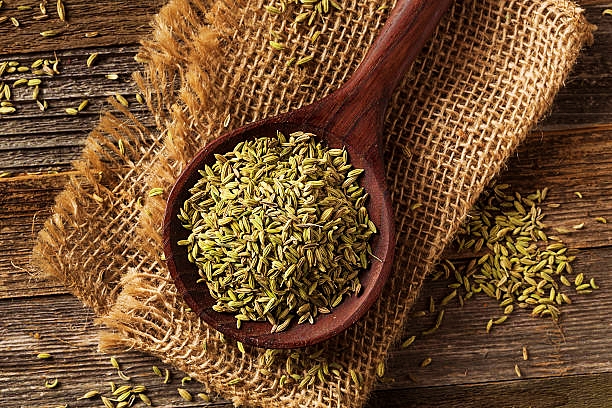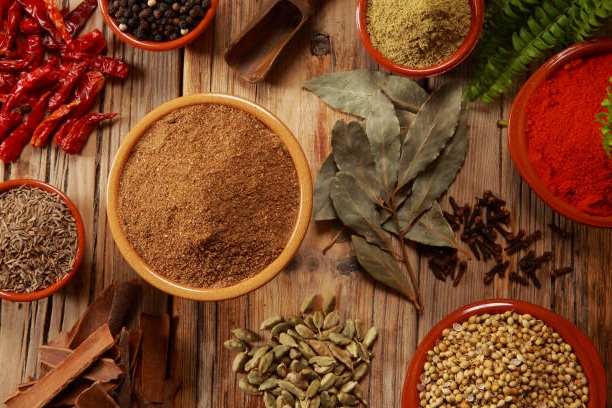What is Fennel and how to use it?
Fennel is an aromatic, flavourful herb that has been used in cooking and medicines for centuries. This herb is loaded with essential nutrients and offers numerous health benefits. In this blog, we will explore what fennel is, its nutritional profile, its health benefits, ways to prepare and use it, and any potential risks associated with consuming it.

Table of Contents
What is Fennel?
Fennel is a wonderfully fragrant and flavorful herb that belongs to the parsley family. It is an aromatic, edible bulb with a distinct flavor that is often compared to anise or licorice. Its lacy, fern-like leaves and yellow flowers are also edible. Fennel is a popular ingredient used in many different culinary dishes, and is a great source of dietary fiber, manganese, potassium, folate, iron, copper, and other minerals. It can be used in salads, soups, stews, and other dishes, and is also often used for seasoning. Fennel has a wide variety of health benefits, including aiding digestion, reducing inflammation, regulating cholesterol levels, and promoting healthy skin.
Nutritional Profile of Fennel
Fennel is an aromatic vegetable that belongs to the Apiaceae family of plants. It is a popular ingredient in many dishes due to its unique flavor profile and beneficial nutritional content. Fennel is a great source of vitamins A and C, as well as dietary fiber. It also contains several minerals, such as potassium, magnesium, and iron. Additionally, fennel has been found to be a source of antioxidants, which help protect cells against damage caused by free radicals. The combination of vitamins, minerals, fiber, and antioxidants make fennel an ideal choice for those looking to increase their intake of essential nutrients.
Health Benefits of Fennel
Fennel, a member of the carrot family, is a highly nutritious plant that has been used for centuries for its health benefits. Rich in minerals, vitamins, and dietary fiber, fennel is a powerhouse of nutrition that can help improve digestion, boost heart health, and even aid in weight loss. Fennel contains high levels of potassium, calcium, and magnesium, which are important for maintaining healthy blood pressure.
It also contains vitamin C, which is essential for a strong immune system. Additionally, fennel is high in dietary fiber, which can help reduce cholesterol levels and regulate blood sugar levels, making it beneficial for those with diabetes. Fennel is also an excellent source of antioxidants, which can protect the body from damage caused by free radicals. For all of these reasons, fennel is an excellent addition to any diet.
Ways to Use Fennel
Fennel is an aromatic and flavorful herb that has been used for centuries in a variety of dishes. It has a mild licorice-like flavor that can be incorporated into many different types of dishes. There are a few different ways to prepare and use fennel, depending on the type of dish. Fennel can be used raw in salads, chopped and sautéed as part of a stir-fry, or even puréed and added to soups and sauces. Fennel can also be roasted and served as a side dish, or used as a garnish for main dishes. Try incorporating fennel into your next meal for a delicious and unique flavor.
Potential Risks of Consuming Fennel
Fennel is a popular herb used in cooking and for medicinal purposes. It has a mild, sweet flavor and is often used in Indian and Mediterranean dishes. Although it is generally considered safe, there are some potential risks associated with consuming fennel. For instance, it can cause an allergic reaction in some people, including hives and difficulty breathing. Additionally, consuming large amounts of fennel can cause digestive issues such as bloating and gas. Furthermore, fennel contains compounds called phytoestrogens, which may disrupt hormone levels in some individuals. Therefore, if you are considering adding fennel to your diet, it is best to consult your doctor first.
Fennel is an incredibly versatile herb with a range of nutritional benefits, from promoting healthy digestion to providing essential vitamins and minerals. Whether you’re adding it to dishes as a flavor enhancer or using it as a medicinal remedy, fennel is an excellent addition to your diet. By understanding the nutritional profile, health benefits, and safe techniques for using and preparing fennel, you can make the most of this powerful herb.



